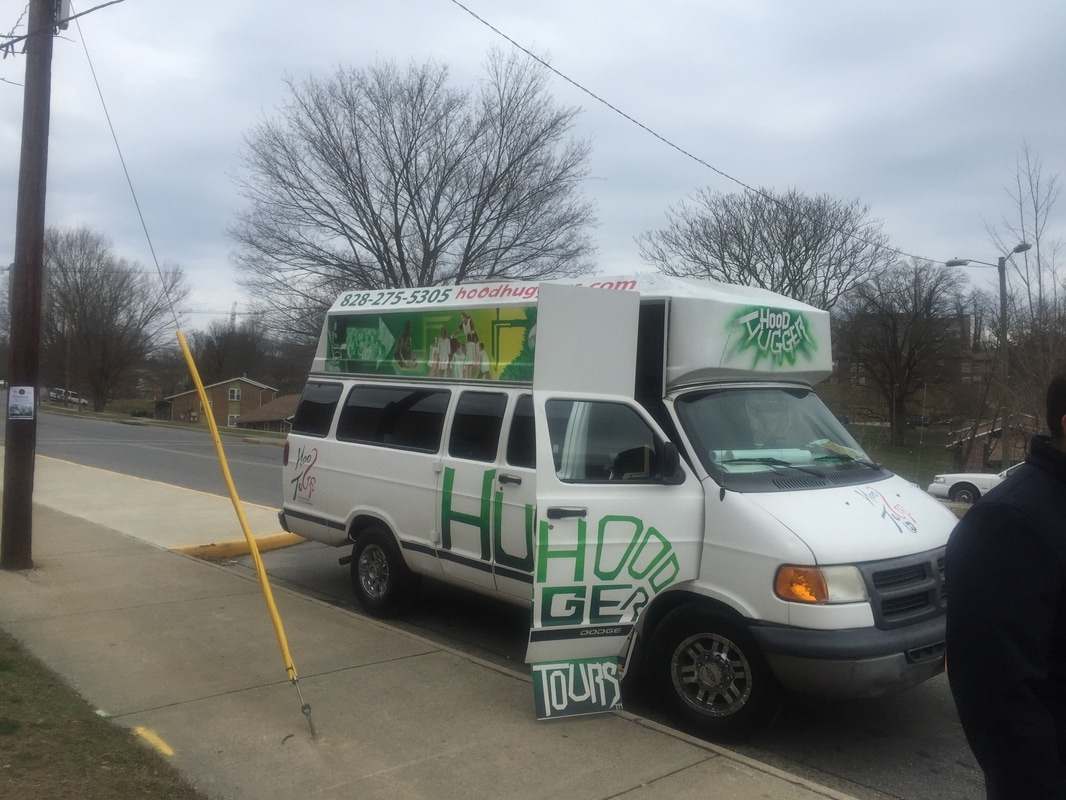|
I recently took the Hood Huggers International tour to learn more about Asheville’s historically black neighborhoods. The brainchild of DeWayne Barton (also the co-founder of the phenomenal Go Green Opportunities) Hood Huggers takes participants on a personally narrated tour from site to site in a small van. Starting at the Stephens-Lee Recreation Center, the gymnasium of the former African-American high school for Western NC during segregation, Barton anchors the tour in personal stories. Holding his mother’s yearbook, he talks about the complex feelings expressed by former Stephens-Lee alumni. There is pride about the caliber of the education that students received (many of the faculty held Master’s degrees and were better educated than their white peers ), anger over the loss of this important icon and gathering place for the black community ( the school was bulldozed in 1975), and sadness over the continued disappearance of both real estate and history in Asheville’s black neighborhoods. Stephens-Lee, the “Castle on the Hill” is a great place to get an overview of the changing face of Asheville- especially the east end and south slope neighborhoods which are dotted with cranes and other signs of the building boom which has swept the city in the past decade. From this vantage point, Barton recites poetry, tells stories of prominent black leaders and landmarks, and points out the many neighborhood spots that have been erased-including an African American neighborhood that sprung up adjacent to Asheville’s former slave market. And that is just the beginning. Facts, figures, and stories abound. We drive to a parking lot, the site of Asheville’s first black hospital, hear about a religious leader whose work nurtured U.S. diplomats, visit a church built by a prolific African American architect. Some of the buildings remain, many are gone, erased as part of the 400 acres bulldozed during Asheville’s aggressive urban renewal campaign, or lost to recent gentrification, which is pushing smaller businesses and marginalized communities out of the city they call home. Even with the buildings razed, as long as there are people like Dwayne Barton to collect and tell their stories, a ghost of their presence remains. How fortunate we are to have people in our community like him, who recognize the value in preserving the stories of our past as we navigate the place Asheville will become.
0 Comments
Leave a Reply. |
NEWS ARCHIVES
July 2021
|

